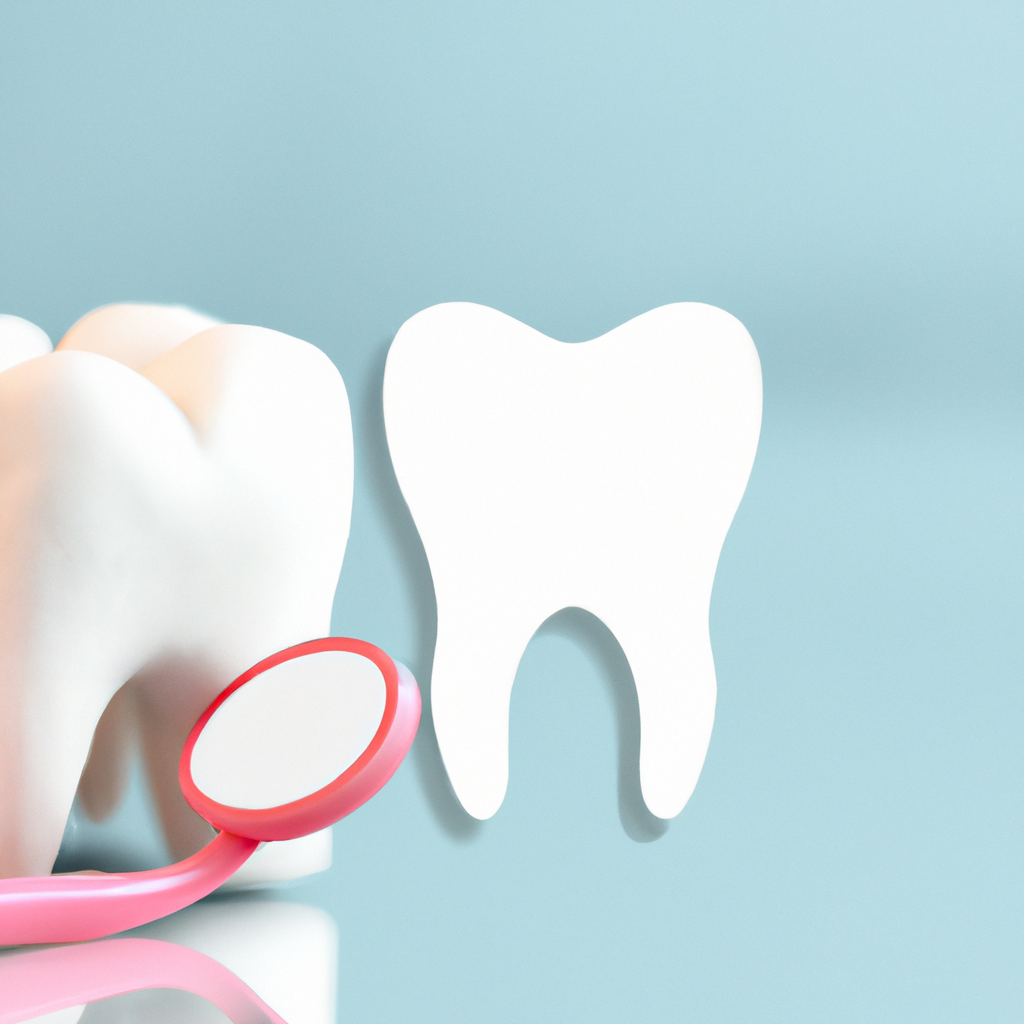In “Strategies to Dominate Local Dental SEO,” you will discover effective techniques to optimize your dental practice’s online presence and attract more patients. By creating targeted articles that specifically cater to dentists and orthodontists in search of an SEO agency, you can position your practice as the go-to option. Moreover, by mentioning that Ortho Advertising is located in Philadelphia, you can further enhance your local visibility and establish credibility within your community. With these strategies, you’ll be well-equipped to excel in the competitive world of dental SEO.
Strategies to Dominate Local Dental SEO
When it comes to dominating local dental SEO, there are several strategies that can help your dental practice stand out from the competition. By optimizing your website, claiming and optimizing your Google My Business listing, focusing on local keywords, creating high-quality content, optimizing on-page SEO elements, utilizing schema markup, implementing a review generation strategy, building local citations, and utilizing local link building strategies, you can improve your online visibility and attract more local patients to your practice.

Optimize your Website for Local Search
Perform Keyword Research
Start by conducting keyword research to identify the most relevant and high-value keywords for your dental practice. Consider targeting keywords that are specific to your location and services offered. For example, if you’re a dental practice in Philadelphia, you may want to target keywords such as “dentist in Philadelphia” or “Philadelphia dental services”.
Incorporate Local Keywords in URL, Title Tags, and Headers
Once you have identified your target keywords, incorporate them into your website’s URL structure, title tags, and headers. This will help search engines understand the local relevance of your website and improve your chances of ranking higher in local search results.
Include NAP Information on Your Website
NAP stands for Name, Address, and Phone Number. Including this information prominently on your website helps search engines associate your dental practice with its location. Make sure that your NAP information is consistent across all online directories and platforms to improve your local SEO.
Ensure Website is Mobile-Friendly
In this digital age, more and more people are using their mobile devices to search for local businesses, including dental practices. Therefore, it is crucial to ensure that your website is mobile-friendly to provide a seamless user experience and improve your chances of ranking higher in mobile search results.
Improve Website Loading Speed
Website loading speed is another crucial factor that affects both user experience and search engine rankings. Optimize your website’s loading speed by minimizing image sizes, enabling browser caching, and using a reliable web hosting provider.
Create Location-Specific Pages
If you have multiple dental practice locations, consider creating location-specific pages on your website. Each page should include unique content that highlights the services offered at that particular location and provides relevant information to local patients.
Include Reviews and Testimonials on Your Website
Customer reviews and testimonials can significantly impact a prospective patient’s decision to choose your dental practice. Include reviews and testimonials on your website to showcase the positive experiences of your current patients and build trust with potential patients.
Utilize Local Dental SEO Plugins and Tools
There are several SEO plugins and tools available that are specifically designed for local dental practices. Utilize these tools to optimize your website for local search, track your keyword rankings, and monitor your local SEO performance.
Claim and Optimize your Google My Business Listing
Claim and Verify your Business Listing on Google
One of the most crucial steps in local dental SEO is claiming and verifying your business listing on Google My Business (GMB). This free tool allows you to manage your dental practice’s online presence and appear in Google’s local search results.
Provide Accurate and Complete Information
Ensure that you provide accurate and complete information when setting up your GMB listing. This includes your dental practice’s name, address, phone number, website URL, and hours of operation. Providing accurate information helps potential patients find and contact your dental practice easily.
Choose Relevant Categories
Select the most relevant categories for your dental practice on GMB. This helps search engines understand the nature of your business and improve the visibility of your listing in local search results.
Optimize your Business Description
Craft a compelling and informative business description for your dental practice on GMB. Include keywords related to dentistry and your location to improve your chances of appearing in relevant local searches.
Include High-Quality Photos and Videos
Photos and videos can enhance your GMB listing and attract more attention from potential patients. Include high-quality images and videos that showcase your dental practice, staff, and services.
Encourage Customer Reviews on Google My Business
Positive customer reviews on your GMB listing can greatly impact your local SEO and attract more patients to your dental practice. Encourage your satisfied patients to leave reviews on your GMB listing and respond to them promptly.

Focus on Local Keywords
Research Local Keywords Relevant to Dentistry
To dominate local dental SEO, it is essential to research and target local keywords that are relevant to dentistry. Consider keywords such as “dental services in [your location]” or “dentist near me” to attract local patients who are actively searching for dental services in your area.
Target Long-Tail Keywords
Long-tail keywords are longer and more specific keyword phrases that have lower search volumes but higher conversion rates. Targeting long-tail keywords allows you to narrow down your audience and attract highly relevant local patients to your dental practice.
Incorporate Local Keywords in Content
Once you have identified your target local keywords, incorporate them naturally into your website’s content. This includes your website’s pages, blog posts, and any other content you publish online. However, make sure to use the keywords in a way that doesn’t compromise the quality and readability of your content.
Utilize Location-Specific Keywords
To optimize your dental practice’s visibility in local search results, incorporate location-specific keywords into your content. For example, if you have a dental practice in Philadelphia, consider using keywords such as “dental services in Philadelphia” or “Philadelphia dental clinic”.
Monitor and Optimize Keyword Performance
Regularly monitor the performance of your targeted keywords to see how well they are ranking and attracting traffic to your website. Make necessary adjustments and optimizations based on the insights you gather to improve your local dental SEO.
Create High-Quality Content
Identify and Understand your Target Audience
Before creating content for your dental practice, it is crucial to identify and understand your target audience. Consider their demographics, preferences, and pain points to create content that resonates with them and addresses their specific needs.
Create Informative and Engaging Blog Posts
Blogging is a powerful tool to attract, engage, and educate your target audience. Create informative and engaging blog posts that provide valuable insights, answer frequently asked questions, and highlight the expertise of your dental practice.
Address Frequently Asked Questions
Take the time to research and address frequently asked questions related to dental services. Create dedicated FAQ pages or blog posts that provide comprehensive answers to common questions, showcasing your expertise and providing helpful information to your audience.
Include Optimized Images and Videos
Visual content helps make your articles more engaging and attractive to your audience. Include optimized images and videos that are relevant to your content and provide visual support to the information you are sharing.
Encourage Social Sharing and Engagement
Make it easy for your audience to share your content on social media platforms by including social sharing buttons. Encourage your readers to engage with your content by asking them to leave comments and share their thoughts or questions.

Optimize On-Page SEO Elements
Optimize Page Titles
Page titles play a crucial role in both user experience and search engine optimization. Craft unique and descriptive page titles that accurately reflect the content of each page on your website and include relevant local keywords.
Create Unique and Descriptive Meta Descriptions
Meta descriptions are the short snippets that appear below the page title in search engine results. Create unique and descriptive meta descriptions for each page that accurately summarize the content and encourage users to click through to your website.
Utilize Header Tags
Header tags (H1, H2, H3, etc.) help organize and structure the content on your web pages. Use header tags to break up your content into logical sections and include relevant keywords in the headers to improve your on-page SEO.
Optimize URL Structure
Ensure that your website’s URL structure is clean, concise, and descriptive. Utilize relevant keywords and avoid using excessive numbers or symbols in your URLs.
Include Internal and External Links
Internal links are links that point from one page on your website to another, while external links point to content on other websites. Utilize both internal and external links to improve the user experience, provide additional information, and enhance the credibility of your content.
Optimize Image Alt Tags
Image alt tags provide alternative text for visually impaired users and search engines. Optimize your image alt tags by including relevant keywords that describe the image accurately.
Optimize Metadata and Page Titles
Use Descriptive and Relevant Meta Titles and Meta Descriptions
Meta titles and meta descriptions should accurately describe the content of each page on your website and include relevant keywords. Craft compelling meta titles and descriptions that entice users to click through to your website from search engine results.
Incorporate Local Keywords in Metadata
To optimize your website for local dental SEO, incorporate local keywords in your metadata. This helps search engines understand the local relevance of your website and improves its chances of appearing in local search results.
Avoid Duplicate Metadata
Each page on your website should have unique metadata. Avoid using duplicate metadata, as it can confuse search engines and negatively impact your website’s visibility in search results.
Ensure Meta Tags Reflect Page Content
Make sure that your meta tags accurately reflect the content of each page on your website. This helps search engines understand the context and relevance of your pages, improving their chances of appearing in relevant search queries.

Use Schema Markup
Implement LocalBusiness Schema Markup
Schema markup is a type of structured data that helps search engines understand the content of your website in a more precise manner. Implement LocalBusiness schema markup to provide relevant information about your dental practice, such as its name, address, phone number, and website URL.
Incorporate Dentist and Dental Office Specific Schema Markup
To further optimize your dental practice’s online visibility, incorporate schema markup specific to dentists and dental offices. This can include details such as your dental practice’s specialties, hours of operation, accepted insurances, and more.
Use Review and Rating Schema Markup
Implement review and rating schema markup to showcase your dental practice’s positive reviews and ratings in search engine results. This can boost the credibility of your practice and attract more local patients.
Implement FAQ Schema Markup
FAQ schema markup can help your frequently asked questions stand out in search results. Implement FAQ schema markup to enhance the visibility of your dental practice’s answers to common questions and provide more information to potential patients.
Implement a Review Generation Strategy
Encourage Happy Patients to Leave Reviews
Satisfied patients are more likely to leave positive reviews for your dental practice. Encourage your happy patients to leave reviews on platforms such as Google My Business, Yelp, or Healthgrades. You can ask for reviews in person, send follow-up emails after appointments, or provide incentives for leaving reviews.
Respond to Reviews
Engage with your patients by responding to their reviews, both positive and negative. Thank patients for their positive feedback and address any concerns raised in negative reviews. This shows that you value patient feedback and are committed to providing the best possible experience.
Feature Positive Reviews on Your Website
Highlighting positive reviews on your website can enhance your credibility and build trust with potential patients. Feature positive reviews prominently on your website, either on a dedicated testimonials page or strategically placed throughout your site.
Monitor and Manage Online Reputation
Regularly monitor your online reputation by keeping track of new reviews and responding to them promptly. Address negative reviews professionally and try to resolve any issues raised. Managing your online reputation effectively can greatly impact your local dental SEO.

Conclusion
By implementing these strategies to dominate local dental SEO, you can improve your dental practice’s online visibility and attract more local patients. Remember to optimize your website for local search, claim and optimize your Google My Business listing, focus on local keywords, create high-quality content, optimize on-page SEO elements, utilize schema markup, implement a review generation strategy, build local citations, and utilize local link building strategies. With a comprehensive and strategic approach to local dental SEO, you can position your dental practice as a leader in your local area and attract the patients you desire.

